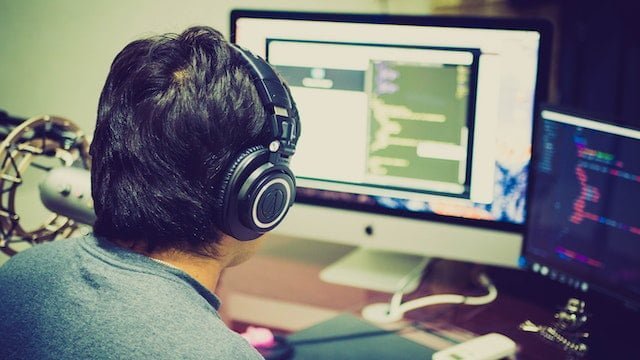
By now, you are probably well aware of the importance of effective software development. As a software developer, you are responsible for creating software that can solve a variety of problems (e.g., a game or an application). Writing good code is a skill that you should have by now, so it is a good idea to understand how to communicate with others about your code.
Thus, given the magnitude of the job, it is common that an employer would want to ask a candidate some tough and thorough questions to ensure that they are getting the best fit. Here are some questions and possible answers that a software developer can be asked during an interview.Also check smart questions to ask your recruiter.
Table Of Contents
5 Most Common Software Developer Interview Questions and Answers samples
- How long have you been a software developer?
Over the past five years as a software engineer, I have developed a wide range of skills in a variety of programming languages and frameworks. I have experience working with both front-end and back-end technologies, and my main technical specialties are Python and Java. I have experience working on a range of projects, from simple web applications to substantial enterprise systems, and I have a demonstrated track record of delivering top-notch software on schedule and within budget.
- What are your strongest suit as a programmer?
As a software engineer, I think my aptitude for swiftly picking up on and adjusting to new technologies is my biggest asset. I am experienced working with a variety of programming languages and frameworks, and I am constantly looking for methods to learn more and develop my skills. Additionally, I have great analytical abilities and a talent for solving problems, which enable me to efficiently analyze and debug complicated problems.
- How do you stay current on the latest software development trends?
I have a strong desire to keep up with the most recent advancements in software development, and I often partake in a range of activities to do this. These activities include reading trade journals and blogs, participating in online learning communities, going to technical meetings and seminars, and making contributions to open-source projects. I also look for opportunities to learn from more seasoned engineers and maintain contact with my professional network.
- Describe a project you worked on where you had to overcome a major obstacle.
One project that springs to mind is a sizable online application I created for a business that provides financial services. The necessity to manage heavy traffic and data processing in a secure and scalable manner was one of the biggest problems we faced. We employed various architectural and performance optimization strategies, including load balancing, caching, and database optimization, to solve this. Despite the initial difficulties we encountered, we ultimately succeeded in completing the project on schedule and within the allotted budget.
5. What methods do you use as a software developer to debug and solve issues?
As a software engineer, my method to troubleshooting and problem-solving usually involves finding the issue’s primary cause by carefully examining the pertinent code, logs, and system information. I will construct and test a hypothesis after I have a solid knowledge of the problem in order to support or refute my notion regarding its root. I will then put a plan in place and make sure it gets the problem solved. I will record the problem and my solution, if necessary, for future reference.
5 Technical Software Developer Interview Questions and Answers

- How do you collaborate with other members of the team and stakeholders when working on software development projects?
I really believe that good communication is essential to the completion of software development projects, so I make it a point to maintain contact with my team members and stakeholders at all stages of the undertaking. This entails contributing actively to team meetings and project planning sessions, communicating progress and status reports, and responding to criticism and requests.
2. How can the excellence of your code be ensured?
To guarantee the caliber of my code, I follow a number of procedures, such as:
- Creating understandable, maintainable code that is concise and straightforward
- Adhering to coding standards and requirements
- Writing thorough unit tests to verify the accuracy and usefulness of my code
- Systematically conducting code reviews with my team members to find and fix any bugs
- Static code analysis tools are used to find possible problems and enhance code quality.
- I keep testing and debugging my code to make sure it is error-free and operates as intended.
3. How do you deal with modifying legacy code?
Working with legacy code can be difficult yet worthwhile. My strategy when dealing with legacy code is to first have a thorough grasp of code base and its functions. Reading through the source code, speaking with the original programmers, and analyzing the documentation and design artifacts might all be necessary for this. I will next determine which parts of the code may be problematic or require refactoring, and I will collaborate with my team to create a strategy for dealing with these problems. To increase the code’s stability and maintainability, this may entail rewriting or reworking some sections, adding tests and documentation, or applying other best practices.
4. How do you deal with working in a group where there are varying viewpoints or methods of problem-solving?
I think that a software development team can benefit from having team members with a variety of viewpoints and problem-solving techniques, and I appreciate the chance to collaborate with them. My strategy while working with a group of people who have different perspectives is to pay close attention to all points of view and give them significant thought. I make an effort to pinpoint the advantages and potential strengths of each strategy and think about how they may be combined into a comprehensive approach. I also try to be open-minded and adaptable, and I am prepared to change my own course or make concessions if doing so will result in a better outcome for the project.
5. How do you deal with time constraints and conflicting priorities?
I have worked on projects where there were competing goals and short deadlines, and I have created a number of tactics for handling these kinds of circumstances. These tactics consist of:
- Prioritizing work based on importance to the deadlines and impact
- Dividing more difficult jobs into smaller, more manageable units
- Using communication to establish priorities and make sure everyone is on the same page with my team and stakeholders
- Remaining organized and focused while avoiding unneeded distractions;
- Asking for assistance and support as necessary from my team and other sources.
- Flexibility and the capacity to change course when necessary
5 Junior Software Developer Interview Questions And Answers

- How do you respond to challenging or unreasonable requests from stakeholders or clients?
I am aware that working on software development projects frequently entails dealing with stakeholders or clients who could have exorbitant demands. My strategy is to first try to understand the underlying needs or concerns of the customer or stakeholder when dealing with challenging or unreasonable requests. After that, I will collaborate with them to create a strategy that addresses their needs while still being practical and realistic given the limitations of the project. If necessary, I will also let the customer or stakeholder know about any potential risks or trade-offs and collaborate with them to come up with a workable solution.
2. How would you manage working on a project with little to no guidance?
My strategy is to first try to learn as much as I can about the project and its objectives when dealing with one with minimal to no direction or needs. Talking to interested parties may be necessary.
3. How can you guarantee the scalability and maintainability of your code?
To make sure that my code is scalable and maintained, I employ a variety of best practices and strategies, including:
- Producing well-structured, clean code that adheres to coding standards and best practices
- Making use of design patterns and other concepts of software architecture to make sure that my code is adaptable and flexible.
- If possible, use reusable and modular code to minimize duplication and complexity.
- Conducting regular code reviews and reworking to find and fix any problems or inefficiencies
- Producing thorough documentation and unit tests to make sure my code is simple to comprehend and maintain.
- Keeping up with the most recent development techniques and technologies to make sure my code is reliable and fast.
4. How do you manage working within a limited resource and budget?
I am aware that software development projects frequently require dealing with limited resources and budgets, and I have expertise coming up with innovative solutions to these kinds of problems. When dealing with such limitations, my strategy is to first comprehend the objectives and priorities of the project before identifying any places where cost or resource reductions can be made without sacrificing the product’s quality or functioning. This could entail locating and utilizing open-source tools and resources, streamlining procedures and workflows, or coming up with innovative ways to cut expenses. In order to make sure we are using our resources as effectively as possible and staying within our budget, I also work closely with my team and other stakeholders.
5. How do you manage utilizing new frameworks or technologies?
I feel at ease working with a variety of frameworks and technologies, and I relish the challenge of picking up new skills and adjusting to new settings. My strategy when dealing with new technologies or frameworks is to first learn the fundamentals of the technology, including its strengths and limitations. I will then ask more seasoned programmers or online groups for information and advice, then I’ll begin exploring and creating basic prototypes to get some practical experience. I will gradually increase my knowledge and skills as I get more accustomed to the technology, and I’ll keep looking for chances to learn more and advance as a developer.
5 Senior Software Developer Interview Questions And Answers

- What procedures do you follow while working on a project that has stringent security or compliance requirements?
I have expertise working on projects with stringent security and compliance requirements, and I am aware of how important security and compliance are in the development of software. When working on projects of this nature, I take the approach of making sure that my code and designs both meet and surpass all applicable security and compliance requirements and guidelines. To protect the integrity and security of the software, this may entail putting security best practices, such as encryption, authentication, and access controls, into place. It may also entail doing routine security testing and audits. I also collaborate extensively with my team and other stakeholders to make sure we are fulfilling all standards and that our code is safe and legal.
2. How do you manage working with distant or spread teammates?
I’ve had experience working with remote teams and coworkers, and I’m aware of the opportunities and difficulties that come with this kind of working environment. I use a variety of communication tools and techniques to work with a distributed team or distant coworkers, such as:
- Keeping in touch with my teammates and stakeholders by means of video conferencing and messaging tools
- Establishing clear expectations and communication protocols to make sure that everyone is on the same page
- Being proactive in seeking out and offering support to my team members;
- Being adaptable and flexible with regard to various work styles and schedules;
- And making an effort to forge strong interpersonal relationships with my team members.
3. How do you manage a project that has a short deadline?
I am aware that deadlines for software development projects are frequently short, and I have worked under time constraints before to produce high-quality software on schedule. When there is a short window of time, I prioritize and concentrate on the most crucial tasks, and I look for help or additional resources as necessary to make sure we are moving in the right direction. I also try to maintain organization and attention while avoiding pointless diversions that can impede our progress. Additionally, I engage with my stakeholders and colleagues to determine and implement any necessary course corrections and keep them informed about our progress and any potential risks or concerns that may occur.
4. How do you deal with an unwilling or tough team member?
I am aware that working on projects that involve software development frequently entails getting along with people who may have various personalities, communication preferences, and approaches to problem-solving. My strategy for dealing with a challenging or recalcitrant team member is to first try to understand their viewpoint and worries, and then to talk freely and honestly with them to identify and address any underlying issues. I also try to be sympathetic and understanding, and I concentrate on identifying points of agreement and ways to cooperate well. To assist in resolving any conflicts or concerns, if necessary, I will also look for direction or support from a manager or other resources.
5. How do you deal with a challenging or picky client or stakeholder?
I am aware that working on projects for software development frequently entails dealing with stakeholders or clients who could have exorbitant demands. My strategy when working with a difficult or demanding client or stakeholder is to first try to understand their requirements and concerns, and then to openly and honestly discuss the project’s objectives and limitations with them. I also try to be adaptable, responsive, and innovative in order to suit their demands while yet being practical and realistic. I will work with my colleagues and the customer or stakeholders to address any issues or concerns, and additionally work with colleagues or stakeholder in finding shared solution.
